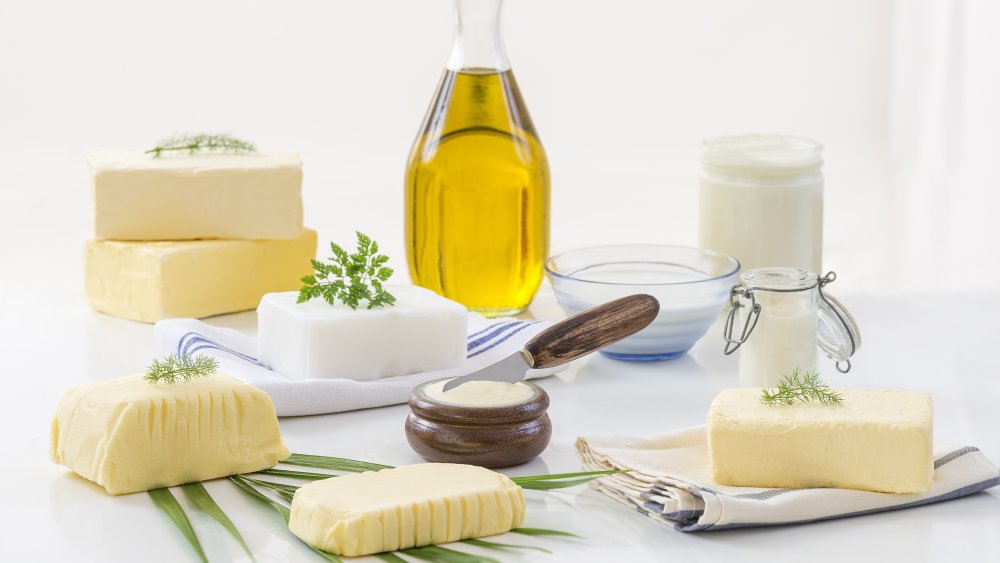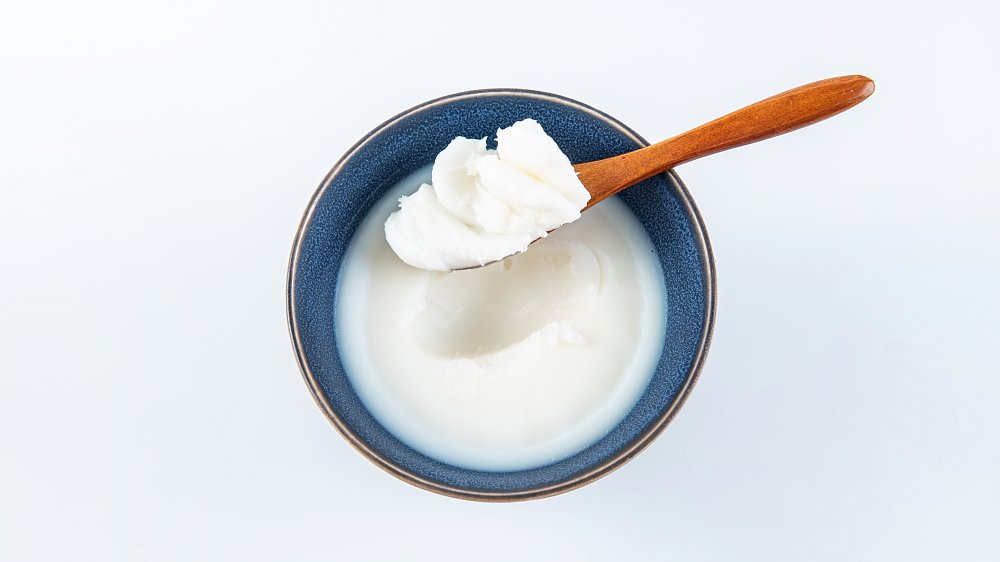Why Lard Might Actually Be Better Than Butter
Just say the word "lard" in a conversation with your yoga buddies and watch their faces retract in horror. This visceral reaction to rendered pig fat is all too common. No one uses lard, let alone talks about it. Lard has long been a staple for bakers and cooks, but since the 20th century it has literally been the victim of fat shaming.
Per an article on Pork Business, lard's fall from grace coincided with the publication of Upton Sinclair's novel The Jungle, which suggested that men would fall into vats of the rendering vats and would themselves be turned into lard. This smear campaign worked. Soon consumers snubbed lard, turning to the likes of Crisco and butter to meet their baking and cooking needs.
It might surprise you to learn that the use of lard in modern kitchens is on the rise again. Celebrity chef Emeril Lagasse uses lard to make his ham and cheese biscuits. Bon Appetit's editor, Liesal Davis, has a recipe for perfect moist and delicious raisin lard cookies. But now, there's reason to believe lard may actually be better than beloved butter — better to cook with, and better for you. We can feel your trepidation and abject indignation, but Jo Travers of the British Dietetic Association recently laid out her case and it may change your mind about using this fat the next time you make your great aunt's pie recipe or serve up crunchy vegetables for dinner.
Lard contains good fats that may help lower cholesterol
Obviously, fat is fat. There's no getting around that. But if you have a choice between butter and lard, lard may be the better option. Per the Independent, Travers was featured on British show Food Unwrapped and told the host, "Lard has actually quite a lot of the monounsaturated fats, and that is the heart healthy fat ... Those kind of fats we actually need in our diets and it has much more in fact than butter does."
Her logic seems to be spot on. Lancaster Online did a side-by-side comparison of lard and butter and noted that on top of having greater monounsaturated fats, lard is 40 percent saturated fat, compared to butter, which clocks in at 54 percent — a significant difference. Moreover, lard contains no trans fats, unless you see the word "hydrogenated" on a label. In that case, avoid these brands of lard. Instead, opt for organic or all natural lards.
Butter lovers should not get too upset. Travers also noted, "The difference between lard and butter is that lard is made up of 50 percent monounsaturated fat, whereas butter is around 32 percent. This would suggest you get slightly more essential fats from lard but, if you enjoy cooking with or spreading butter on your toast, then you should go for it."

